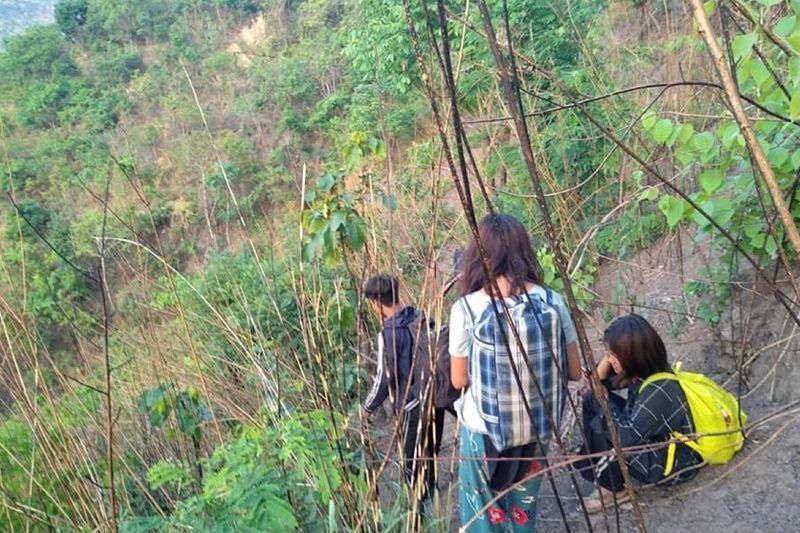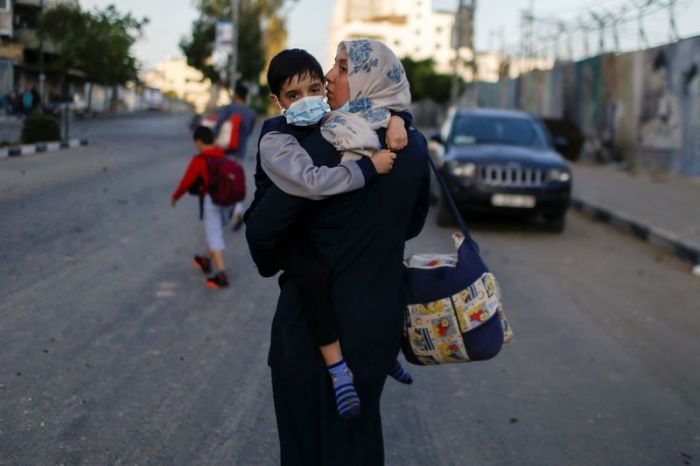(Reuters) -Children and the elderly make up a large proportion of the people taking refuge in camps in northwest Myanmar to escape fighting between the army and insurgents, residents said on Thursday, as France called for an urgent delivery of humanitarian aid.
In the past week, Chin State bordering India has seen some of the most serious fighting since Myanmar’s military seized power in a coup on Feb. 1 and removed the elected government led by Nobel laureate Aung San Suu Kyi.
India said this week that more than 15,000 people had crossed the border to seek refuge, but residents in Chin State said many of the most vulnerable were sheltering in camps around the town of Mindat after it was overrun by the army.
“Children and the elderly make up a big proportion of the groups. Some didn’t have sandals. They trekked through the forest barefoot for days,” said a 34-year-old resident helping look after the displaced but asked not to be identified.
He said that villages around Mindat were caring for about 2,000 displaced people in camps and churches, while access to the town once home to more than 40,000 people had been blocked.
“We will face food shortage after a week,” said the resident, adding that petrol supplies were about to run out.
At least 10 people have been killed in Chin State in the past week, according to figures from the Assistance Association for Political Prisoners activist group.
It puts the countrywide death toll since the coup at 807, a figure disputed by the army.
Pleading for international aid, another Mindat resident said the camp he was at had 13 bags of rice and would see shortages soon, with the 140 people there now expected to swell to 300.
Those fleeing say thousands of people left Mindat after the army attacked to root out fighters of the newly formed Chinland Defence Force, who are aligned with a National Unity Government (NUG) formed by the junta’s opponents.
‘IMMEDIATE NECESSITY’
The French Embassy in Myanmar blamed a “disproportionate use of force and war weapons against civilians by the military” for causing a loss of human life and the displacement of thousands in Chin State.
“The restoration of access to water and electricity as well as the delivery of humanitarian aid for population in need are an immediate necessity,” the embassy said in a statement on its Facebook page.
Fighting in the area is continuing, and a citizens’ administrative group said in a post on social media that Chin militia had killed three soldiers on a road out of Mindat on Wednesday.
The United Nations said nearly 10,000 people had been displaced in Kachin State in the north by renewed fighting since mid-March. Thousands have also been displaced by clashes in the east and northeast.
A spokesman for the military council did not answer calls for comment.
The junta has struggled to impose its authority in the face of daily protests, paralysing strikes and an upsurge of fighting against old and new groups of ethnic minority fighters.
Attacks on junta-appointed local administrators have increased in recent weeks, with state media on Thursday reporting “terrorists” and “insurgents” had killed or wounded officials with knives, guns and home-made bombs.
It also reported arson attacks on state-owned property in several cities. Witnesses and local media reported explosions on Thursday in Mandalay and the biggest city, Yangon.
Anti-coup marches took place in different parts of the country by day, with candle-lit strikes and protests by night on Thursday, all calling for the overthrow of the military, many with signs backing the unity government.
The NUG on Thursday announced the formation of a commission to draft a new federal constitution, hoping to follow through with a pledge by Suu Kyi’s party to replace the current military-drafted charter.
Myanmar’s constitution had long been a source of friction between the army and Suu Kyi’s government, which was intent on amending it to reduce the military’s political powers, which included parliamentary seats and control of defence and interior ministries.
The junta has been hit by Western sanctions and widely condemned over the coup and its violent suppression of protests, but has found a diplomatic friend in Russia, a key source of its defence hardware.
News outlets in both countries on Thursday reported a Myanmar military delegation was visiting Moscow to attend an exhibition showcasing Russian helicopters.
(Reporting by Reuters Staff; Writing by Ed Davies; Editing by Robert Birsel and Hugh Lawson)




















